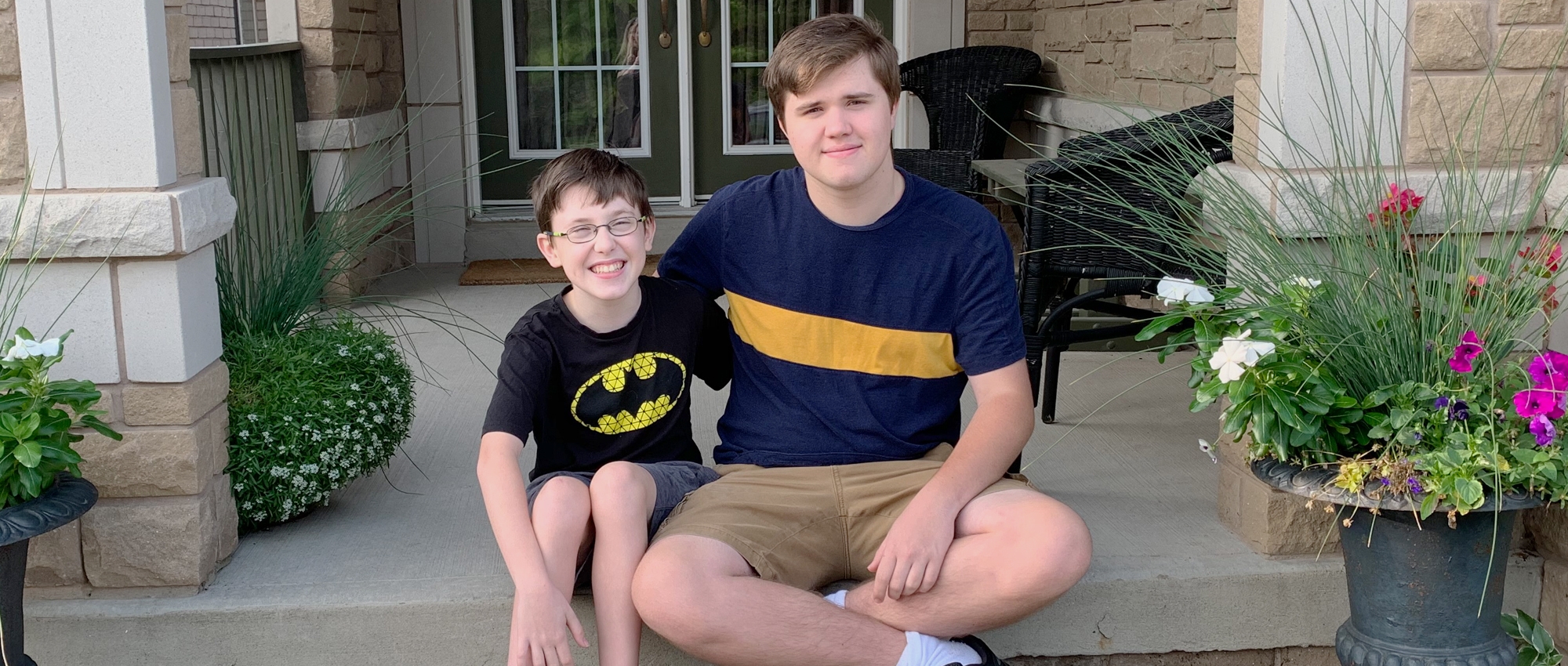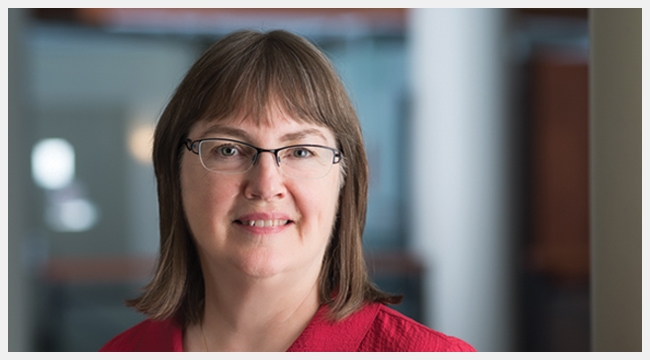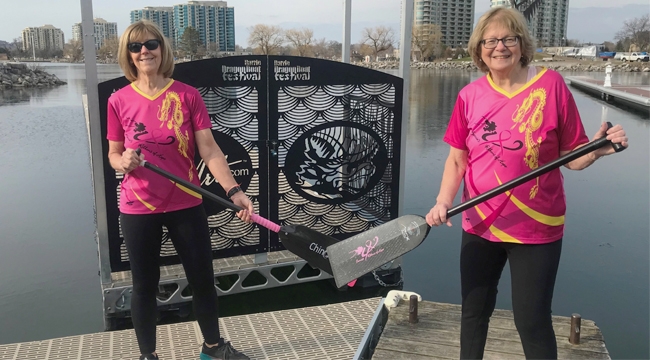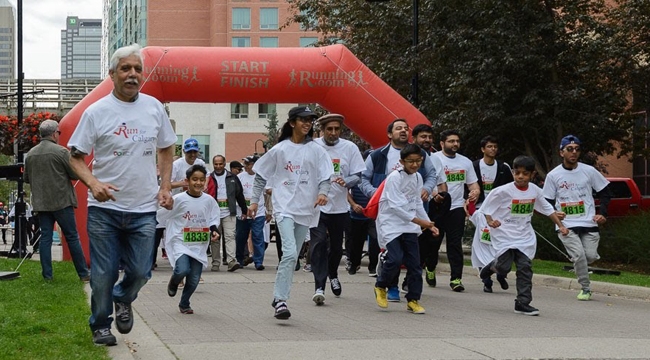As thanks for his brother’s health, teen donates blood for the first time
Nolan Clark also joined Canadian Blood Services Stem Cell Registry after turning 17
Eleven years after blood transfusions saved the life of his little brother, a teenager from Dundas, Ont. expressed his gratitude by making his own first blood donation.
“It was something I wanted to pay forward from our family,” says Nolan Clark, 17.
Nolan’s little brother Nicholas was born 12 weeks early, weighing just two pounds, and required intense medical intervention to survive. Nolan was afraid that he would lose him before he even got the chance to be a big brother. Thankfully, blood transfusions from a single donation saved Nicholas’s life twice and allowed his family to bring him home after three months in the hospital.
Triplets mark 17th birthday by becoming first-time blood donors
Baby’s need for blood inspires a long-distance friendship
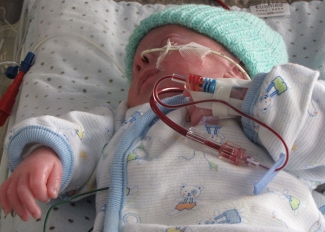
Nicholas Clark’s life was saved twice by multiple transfusions from a single blood donation.
More than a decade later, Nicholas is happy and healthy, and Nolan is grateful every day for the lifesaving blood donation that helped his brother. So grateful, in fact, that on his 17th birthday, he visited a Canadian Blood Services donor centre to donate blood for the first time. When he turned 17, Nolan also became eligible to join Canadian Blood Services Stem Cell Registry, so he has signed up as a potential stem cell donor as well.
Am I eligible to donate blood?
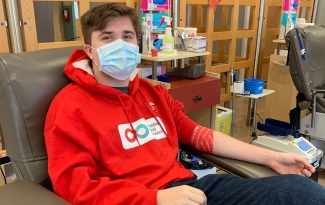
Nolan Clark recently donated blood for the first time. He made that first donation as soon as he was eligible to do so, on his 17th birthday, to honour the lifesaving blood donation that saved his younger brother Nicholas as an infant.
Nolan’s decisions to donate blood for the first time and to register to donate stem cells were just the latest in a long string of efforts by his family to support patients through Canadian Blood Services. Nicholas has been the face of a Canadian Blood Services fundraising campaign. And the boys’ mother Shannon ― who is approaching her own 50th blood donation ― has volunteered for Canadian Blood Services’ Speakers Bureau, sharing her story at workplaces, schools and community groups to actively recruit blood and stem cell donors. She also shared her family’s story in a Canadian Blood Services video to support Partners for Life, a program that empowers teams and organizations to support patients through group blood donations, fundraisers and more.
Like his mother, Nolan has become an advocate as well as a donor, using his role on his high school’s student council to encourage his school community to support Canadian Blood Services.
"I want to inspire people to consider becoming a blood donor, if they are able to do so,” says Nolan. “I want people to know their precious time can save a precious life.
“I have a unique opportunity to share my brother's story, and how important it has been to see my younger brother grow up alongside me. I can use my various platforms, hoping that it’ll inspire others to become blood donors.”
World traveller overcomes fear of needles to donate blood, portion of liver
Heroes of financial giving: 20-year-old plasma recipient raises funds
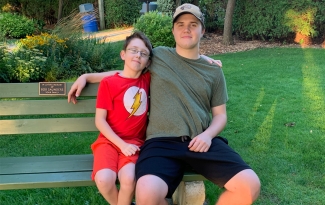
Nolan Clark, right, has O-negative blood ― the same type of blood that was used to save the life of his younger brother Nicholas, left, after he was born 12 weeks premature.
By becoming a donor, Nolan discovered that his blood type is O-negative, a type shared by only seven per cent of Canadians. O-negative red blood cells are compatible with all other blood types, so they are used in critical emergencies where there is no time to confirm a patient’s blood type. O-negative was also the blood type of the donation Nicholas received. Knowing the special importance of O-negative blood, Nolan is inspired to become a regular, dedicated donor.
Nolan fits his blood donation advocacy into a busy schedule that also includes guitar lessons and his “ecowalking” conservation initiative where he collects garbage and recycling from parks and greenspaces in his community. Nolan knows from his own family’s experience that anyone can find themselves in need of lifesaving blood products at any time. So he’s keen to remind people that the need continues in communities across Canada through the pandemic, and that there are many COVID-19 safety measures in place at donor centres.
“I would like to encourage every Canadian who is eligible to consider becoming a blood donor, as well as encourage those between the ages of 17 and 35 to join Canadian Blood Services Stem Cell Registry. These are small acts that make a big difference to patients.”
Donations to Canadian Blood Services help premature infants and so many other patients in need. Learn more about all ways to donate.
